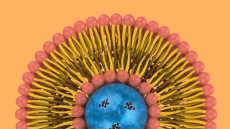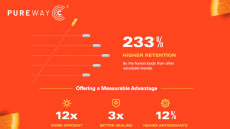Vitamin D boosts NSAID cancer-fighting power
anti-inflammatory drugs act as a powerful combination to halt the
growth of prostate cancer cells, say US scientists.
Writing in Cancer Research, a team from Stanford University says it discovered that the amount of both activated vitamin D, or calcitriol, and NSAIDs could be reduced by half to one-tenth the dosage to thwart prostate cancer cell growth in cell lines and primary tissue cultures.
If work in animal models and human trials confirm the findings, the combination may help to keep the NSAID family of drugs among the pharmaceutical choices for the prevention and treatment of cancer, it said.
Such drugs include ibuprofen, indomethacin and naproxen, as well as the COX-2 inhibitors linked to increased risk for cardiovascular disease, Vioxx and Celebrex.
"NSAIDs have their own risks," said David Feldman, professor of Medicine at Stanford's division of Endocrinology, Gerontology and Metabolism.
"So, we have to be careful even with lower doses and we still need to watch the patients very closely if we intend to keep them on these drugs for extended periods of time. But we are aiming to find doses that are less toxic and far more tolerable for the patient."
The scientists found that vitamin D works to limit the growth of prostate cancer cells by interfering with the same molecules attacked by NSAIDs - the prostaglandin/COX-2 pathway.
Prostaglandins are responsible for activating the inflammatory response that results in pain and fever. NSAIDs work by blocking an enzyme called cyclooxygenase-2 or COX-2 which is essential for prostaglandin synthesis, thereby relieving some of the effects of pain and fever.
In this study, activated vitamin D or calcitriol was shown to act as a triple threat against this pathway, in prostate cancer cells.
First, it limits the expression of a key enzyme needed to synthesize prostaglandins into COX-2. Then it increases the expression of an enzyme that rapidly disassembles active prostaglandin molecules, thus promoting the breakdown of the hormone.
Finally, the scientists discovered that calcitriol inhibits the production of two cell receptors used by prostaglandins to regulate gene expression and control tumor proliferation.
While the scientists showed that activated vitamin D, calcitriol, works by itself to limit prostate cancer growth, it is equally effective in much smaller doses when used in combination with NSAIDs.
Furthermore, calcitriol dramatically reduces the amount of NSAIDs necessary to curb prostate cancer cell growth.
This is particularly important now, in light of recent studies showing that some NSAIDs that are selective for COX-2 targeting, such as Vioxx and Celebrex, are linked to cardiovascular disease at their prescribed doses.
While their studies provide insight into cellular activities controlled by both calcitriol and the NSAIDs, Feldman and his colleagues remain cautious about advancing their new-found understanding of prostaglandin chemistry into patients.
"We need to verify that vitamin D and NSAIDs work in synergy not just in these cell lines, but also work in the same manner, in humans which have a vastly more complex physiology than simple cells in a culture plate," Feldman said.
Vitamin D is converted in the liver and kidney to the active form called calcitriol, a hormone that has widespread actions in the body. Vitamin D available over the counter would not achieve the therapeutic levels of calcitriol needed to inhibit cancer cell growth, since the body has mechanisms to limit its activation to calcitriol, Feldman explained.











